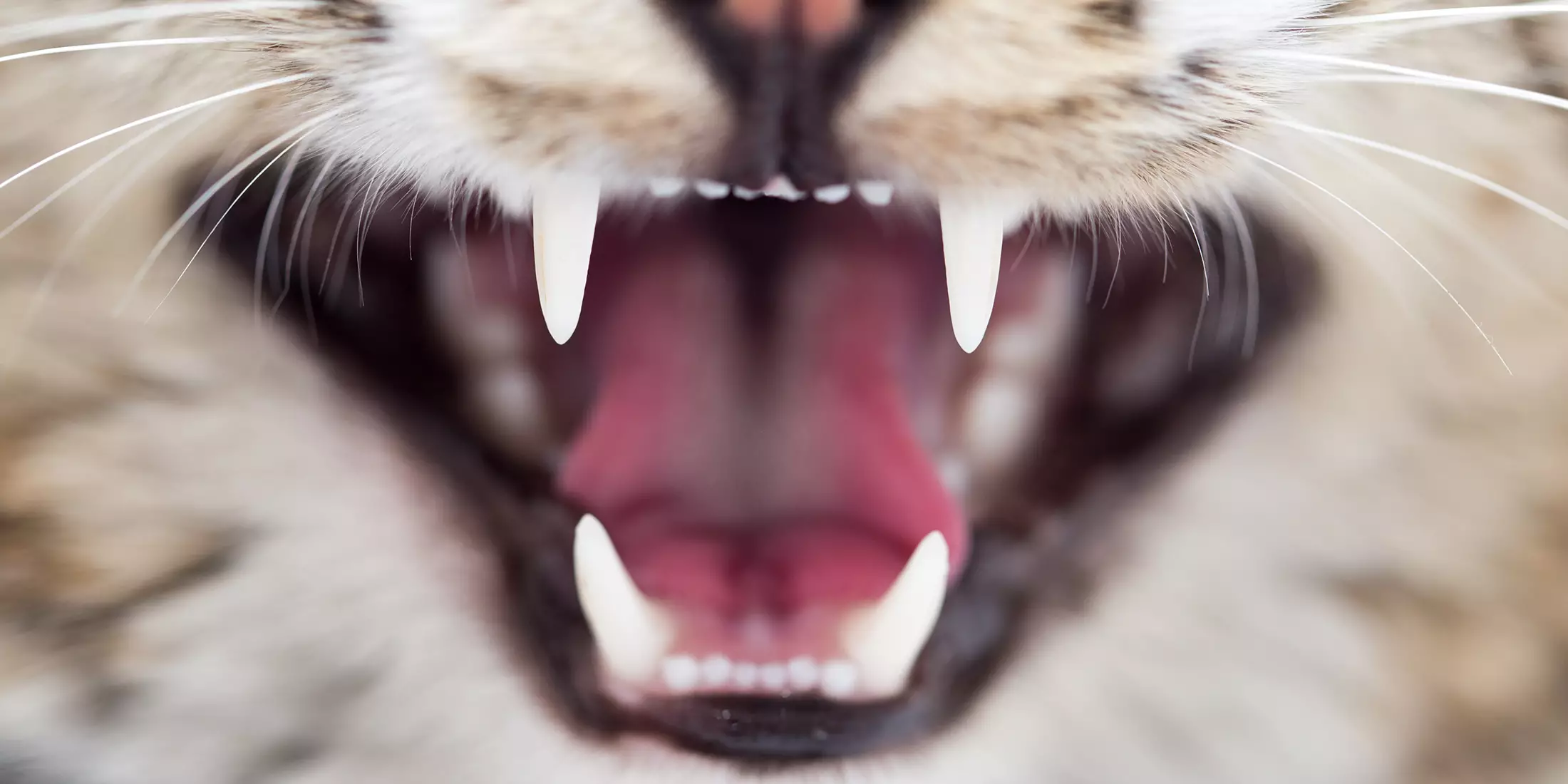Mouth Cancer in Cats
Contents of Article
Did you know the oral cavity is a common site for various tumors in cats? Mouth cancer in cats is one of the most common types of cancer in the feline community, accounting for 3% of all feline cancers. Mouth cancer is caused by malignant tumors developed within the oral cavity. Cheeks, back or roof of the mouth, tongue, lips, and upper or lower jaw are the most common locations.
Among the different types of malignant tumors, oral squamous cell carcinoma is the most common. This is a serious disease that invades the surrounding mouth structures, including tongue, mandible, dental arcade, and maxilla. Unfortunately, the tumor often goes unnoticed until the lesion has advanced. Although cats suffering from the condition experience intense oral pain, they do not exhibit any signs of the condition until they develop bad breath. Also known as halitosis, bad breath is caused by bacterial infection in the cat’s mouth. Early detection of oral cancer in cats is crucial for a proper diagnosis and successful treatment.
What is Feline Oral Cancer
It is a form of cancer that develops in the cells that produce the cat’s mouth and throat lining, including tongue, cheeks, gums, and tonsils. The cancerous cells grow quickly in the mouth tissues. Only a tiny part of the tumor growth is visible, while the rest remains hidden beneath. This makes detection difficult for owners.
Bad breath, refusal to eat food, facial swelling, swollen gums, drooling, and teeth loss are some of the most common symptoms of mouth cancer in cats. However, these may also be signs of periodontal disease.
The following are the most notable symptoms of mouth cancer in cats.
- An active and agile cat may suddenly start to show signs of lethargy.
- A kitty who loves being caressed on the chin may start resisting your touch.
- Her food preferences may change. For example, if your kitty loves dry crunchy food, she may suddenly develop a liking for canned food. This may be a sign of pain in her oral cavity.
- Dying tissue in the mouth is one of the main causes of nasty mouth smell or bad breath.
- Some other symptoms of mouth cancer in cats include mouth bleeding, facial swelling, oral discharge, sudden weight loss, loose teeth, teeth loss, reduced appetite, or difficulty swallowing. Your furry friend may resist opening her mouth, as she experiences pain doing so. Loose teeth could indicate the destruction of bone due to the growth of a tumor.
- Your pet may start scratching their faces when they experience signs of pain. They may start dribbling too.
Oral Squamous Cell Carcinoma in Cats
An aggressive form of oral cancer in cats, oral squamous cell carcinoma or SCC is an extremely invasive tumor that attacks the jaw bone.
Although there is no specific cause of mouth cancer in cats, the following environmental and dietary factors may contribute to the growth of malignant tumors in the oral cavity.
- A higher intake of canned food, especially tuna fish, may contribute to the development of cat mouth cancer.
- Besides, the risk of oral cancer in cats may increase with the use of flea collars.
- Cats with an increased exposure to secondhand tobacco smoke may be at a risk of SCC.
Diagnosis of Mouth Cancer in Cat
If you suspect something wrong with your kitty, it is crucial to take her to the veterinarian.
- The vet may begin the diagnosis with a review of the cat’s medical history and symptoms.
- A simple palpation may help detect any signs of enlargement of the lymph nodes under the jaw and along the neck. If the lymph nodes are found to be swollen, this may indicate that the cat is fighting a serious medical condition.
- For a complete diagnosis of the feline oral cancer, he may want to fully examine your cat’s mouth. In order to do so, sedation or anesthesia may be required to examine suspected tumors in the back of the cat’s mouth or on the tongue.
- If he finds a tumor or mass in the oral cavity, he may request blood work.
- A tissue biopsy is done to confirm and determine the type, stage, and treatment of cancer. An X-ray of the skull helps identify the invasion of the SCC in the bony structures of the jaw.
- A chest X-ray may be done before the biopsy to check for signs of metastasis to the lungs, as oral cancer in cats is very aggressive. This gives the vet a clear picture of the extent of spread and growth of tumor masses within the cat’s body.
- Advanced imaging may be performed to evaluate bone invasion and the extension into the surrounding areas, including the pharynx, nasal cavity, or eye.
Treatment of Mouth Cancer in Cats
Treatment of feline oral cancer depends on the location of the oral mass. It also depends on the extent of the spread of the mass or tumor to the surrounding tissues or bones.
Surgery is often performed to remove the tumor from the front portion of the cat’s mouth. Unfortunately, it is not always possible to remove the mass. This is so especially if the tumor is located on the back or roof of the mouth. Surgery may not be an option if the tumor has spread to vital structures.
Radiation therapy and chemotherapy may be alternative options to slow down the progression of cancer. These are options to improve the comfort level and quality of life of a kitty diagnosed with cat mouth cancer.
With therapeutic treatments, you can temporarily shrink the tumor, so that the cat does not experience much pain in her oral cavity and can eat properly. Early detection of mouth cancer in cats can increase the chances of the kitty’s survival.







